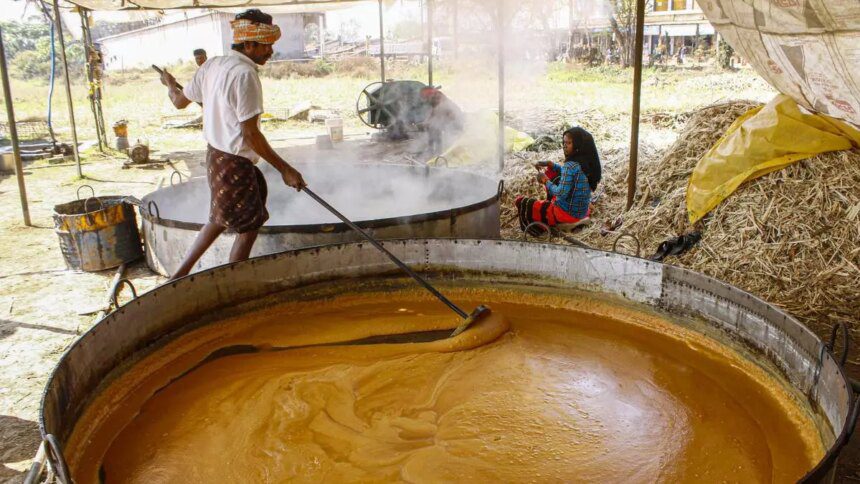Jaggery, a traditional sweetener made from sugarcane juice, has long been produced using conventional methods that have negative environmental impacts. However, researchers at IIT-Madras have developed a solar-powered method for jaggery production that could revolutionize the industry. This new approach addresses both pollution and inefficiencies in current practices by using sustainable energy sources.
The process involves using solar stills to produce jaggery from sugarcane juice. This approach combines refrigeration and solar heating to reduce energy requirements significantly. The system operates over a three-day process, starting with the steaming of fresh sugarcane to extract the juice. The juice is then concentrated using solar stills, which utilize solar radiation and external reflectors to evaporate the remaining water content. On the final day, the concentrated juice is heated to produce high-quality jaggery.
One significant advantage of this method is that it also generates distilled water as a valuable byproduct. This additional revenue stream can reduce the payback period for the system to less than five years. The system is designed to produce 100 kg of jaggery and 169.78 kg of distilled water daily while reducing carbon dioxide emissions by 3,000 tonnes over its operational lifetime.
While still in the research phase, this solar-powered jaggery production method demonstrates how traditional food production processes can be modernized to meet environmental and economic demands. It has the potential to serve as a model for integrating renewable energy into other food production systems. The researchers are currently working on optimizing the system for field deployment, focusing on logistics, cost, and awareness.
In conclusion, the development of a solar-powered method for jaggery production is a significant step towards more sustainable and environmentally friendly practices in the industry. By reducing energy consumption and carbon emissions while also generating valuable byproducts, this approach showcases the potential for innovation in traditional food production processes.








